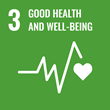Project information
RecQ4 – a protein hub required for proper replication and recombination and its implications in Rothmund-Thomson Syndrome
- Project Identification
- MUNI/G/1594/2019
- Project Period
- 3/2020 - 12/2022
- Investor / Pogramme / Project type
-
Masaryk University
- Grant Agency of Masaryk University
- INTERDISCIPLINARY - Interdisciplinary research projects
- MU Faculty or unit
- Faculty of Science
- Other MU Faculty/Unit
- Faculty of Medicine
- Other MU Faculty/Unit
- Central European Institute of Technology
Mutations in RECQ4 helicase cause the Rothmund-Thomson syndrome. The disease is characterized by chromosome fragility, premature aging, developmental abnormalities and predisposition to cancer. RecQ4 participates in several cellular processes, including DNA replication, DNA damage response, telomere and mitochondrial maintenance. However, it is not clear which impaired functions of RECQ4 trigger the pathogenic effects. We have identified several novel RecQ4 interacting partners mediated by the conserved N-terminal domain required for cell viability. Here we propose a multidisciplinary set of biochemical, biophysical, structural, cellular and genetic approaches to understand the molecular function of RecQ4 protein in cells and its correlation to disease development. We set three goals to unravel the roles of RecQ4 during replication and resolution of replication/recombination intermediates. Krejci’s lab will focus on biochemical characterization of the above-mentioned protein interactions and their effect on replication initiation and progression, as well as resolution of stalled intermediates in human cell lines. Tripsianes’ group will focus on structural and biophysical characterisation of interaction interfaces and identify separation of function mutants. Silva’s team will nicely complement the biological role of RecQ4 in the C.elegans model system. The proposed synergy promises to dissect RecQ4 multiple functions in genome maintenance, which in turn will offer a better understanding on the development of RECQ4 associated diseases.
Sustainable Development Goals
Masaryk University is committed to the UN Sustainable Development Goals, which aim to improve the conditions and quality of life on our planet by 2030.
Publications
Total number of publications: 4
2023
-
Recognition and coacervation of G-quadruplexes by a multifunctional disordered region in RECQ4 helicase
Nature Communications, year: 2023, volume: 14, edition: 1, DOI
2022
-
The role of bivalent ions in the regulation of D-loop extension mediated by DMC1 during meiotic recombination
iSCIENCE, year: 2022, volume: 25, edition: 11, DOI
2021
-
Nucleotide proofreading functions by nematode RAD51 paralogs facilitate optimal RAD51 filament function
Nature Communications, year: 2021, volume: 12, edition: 1, DOI
2020
-
TREX2 Exonuclease Causes Spontaneous Mutations and Stress-Induced Replication Fork Defects in Cells Expressing RAD51(K133A)
Cell Reports, year: 2020, volume: 33, edition: 12, DOI
